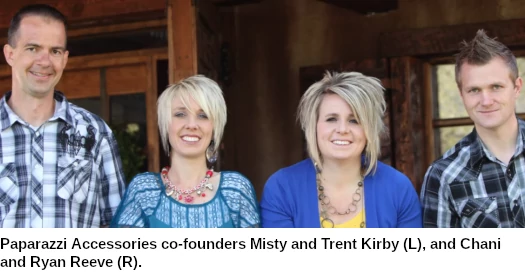Paparazzi pays $1.9 million pyramid judgment in Washington
![]() Earlier this month Paparazzi abruptly terminated its Washington State consultants.
Earlier this month Paparazzi abruptly terminated its Washington State consultants.
Paparazzi made no mention of any pending enforcement action, but it felt like the company was withholding information.
A February 27th judgment reveals Paparazzi settled pyramid fraud allegations in Washington for $1.9 million.
As per the filed consent judgment, the State of Washington conducted an investigation into Paparazzi.

The investigation focused on violations of the Consumer Protection Act and Antipyramid Promotional Scheme Act.
Upon concluding its investigation, the Washington AG’s Office decided to pursue the matter in court. Rather than defend Washington’s allegations, Paparazzi opted to settle.
As per the terms of the settlement, Paparazzi consented to a thirty-one day injunction. The injunction prohibits Paparazzi from
advertising, marketing, promoting or offering a business opportunity to Washington residents or in the state of Washington.
After the thirty-one day injunction period, Paparazzi is prohibited from marketing a “business opportunity” that
- determines a Consultant’s Compensation, or eligibility to receive Compensation, based primarily on that Consultant’s purchase of goods or services or other Consultant’s purchase of goods or services;
- Requires any mandatory purchases in order to qualify for rank or compensation.
- Bases compensation, qualification, or rank on any of the following factors: (1) the number of people in a Consultant’s downline; (2) the depth of a participant’s downline; or (3) a Consultant’s personal volume; or (4) the purchase volume of the Consultants in a Consultant’s downline.
In other words “pay to play” and autoship recruitment, both of which are hallmarks of an MLM pyramid scheme.
As noted in BehindMLM’s published Paparazzi review (2021);
Other than standard retail commissions, there is nothing in Paparazzi’s compensation plant to suggest retail is a focus.
Residual commissions and the generational bonuses are shallow, keeping Paparazzi Accessories affiliates focused on recruitment over leverage.
And again, there’s nothing to deter this behavior in Paparazzi Accessories’ compensation plan. Nor does the company mention whether it verifies retail sales are being made as the monthly affiliate orders pile up.
Paparazzi is permitted to run a compensation plan that
establish[es] a minimum amount of monthly Retail Sales necessary in order to participate in the compensation plan.
Thirty-one days hasn’t passed yet so it remains to be seen whether Paparazzi implements this, or continues to run a pyramid scheme with little to no retail sales outside of Washington.
In addition to the above conditions, if Paparazzi wishes to continue operating in Washington, they will also need to:
- provide prospective Consultants with an Income Disclosure Statement;
- prohibit recruitment of prospective Consultants until seven days after they have been provided with an Income Disclosure Statement (no contact is allowed during this cooling-off period);
- cease paying compensation “on the basis of purchases made by Consultants”;
- collect sales data from Consultants;
- verify claimed retail sales through “random and targeted audits”;
- a 60-day cooling off period for new Consultants, allowing them to return any purchased product inventory;
- implement a 12-month buy-back program for purchased inventory;
- cease making misleading misrepresentations about Paparazzi as an MLM opportunity, including income representations, the amount of time and effort required and blaming Consultants for business failure; and
- submit to compliance monitoring till 2030.
The takeaway is that if Paparazzi resumes MLM operations in Washington state, they have to focus on retail sales.
If you’re reading this post March 30th, 2025 or so and Paparazzi hasn’t resumed operations in Washington state, they’ve basically admitted that they can’t operate legally.
Paparazzi’s $1.9 million judgment will be used to compensate former Washington-based Paparazzi consultants.
Attorney General Nick Brown will send 7,100 Washingtonians who sold jewelry for the company checks of an average of $180 in the near future.
Pyramid schemes are illegal at the federal level but it’s unclear whether the FTC will take action. At time of publication the FTC is unfortunately pushing quid pro quo political agendas over consumer protection.

